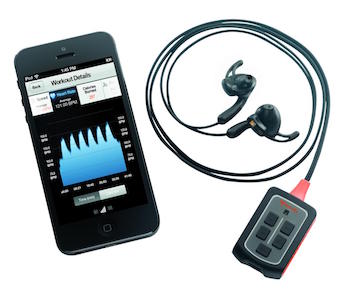 Raleigh, North Carolina-based heart rate sensor company Valencell has raised $8.4 million more in a round that totaled $11 million. The round was led by GII Tech with participation from existing investors TDF Ventures and WSJ Joshua Fund. This brings the company’s total funding to $24.5 million to date.
Raleigh, North Carolina-based heart rate sensor company Valencell has raised $8.4 million more in a round that totaled $11 million. The round was led by GII Tech with participation from existing investors TDF Ventures and WSJ Joshua Fund. This brings the company’s total funding to $24.5 million to date.
The company disclosed the first tranche of this round in September 2015 in an SEC filing.
Valencell, which was founded in 2006, doesn’t sell products directly to consumers, but instead licenses out its PerformTek sensors to be incorporated into different wearables. It licenses the technology to a number of partners, including Sony, Jabra, LG, iRiver, and Atlas Wearables.
The company now has more than 25 licensees. Two newly announced license deals include one with BioConnected, a company out of Australia that is developing biometric earbuds, and another with fashion-focused health wearable company Caeden.
Valencell CEO Michael Dering told MobiHealthNews that the company will use the funds to hire about 10 more employees and expand its research and development efforts. Dering also said that Valencell is looking to move into different verticals.
“Right now we are pretty heavily focused in health and fitness,” he said. “We would like to move into personal health. We think the accuracy that gained notoriety in sports and fitness will play a major part in the personal health market, moving into first responders and military.”
The company is also seeing more interest in its offering from traditional medical device companies, Valencell Vice President of Marketing Ryan Kraudel told MobiHealthNews.
“We are seeing an interesting pattern in the market where you have the medical device companies who know highly accurate measurement devices in the medical realm very well, but what they don’t know is how to make a device that people want to wear 24-7,” Kraudel said. “And then you have the wearable device companies that know how to make something that people actually like to wear, but they don’t have the level of accuracy needed for a personal medical device. You have these two segments of the market coming after the same opportunity from different angles.”
A couple months ago, news broke that Valencell was suing both Apple and Fitbit over alleged patent infringement, and was accusing Apple of additional deceit as well. A lawsuit filed in North Carolina alleges that Apple stole the technology that powers the heart rate sensor in the Apple Watch from Valencell, obtaining said technology through insincere partnership overtures and whitepapers downloaded under fake names. The Fitbit suit is fairly straightforward, and seeks damages for the alleged infringement of four Valencell patents.














